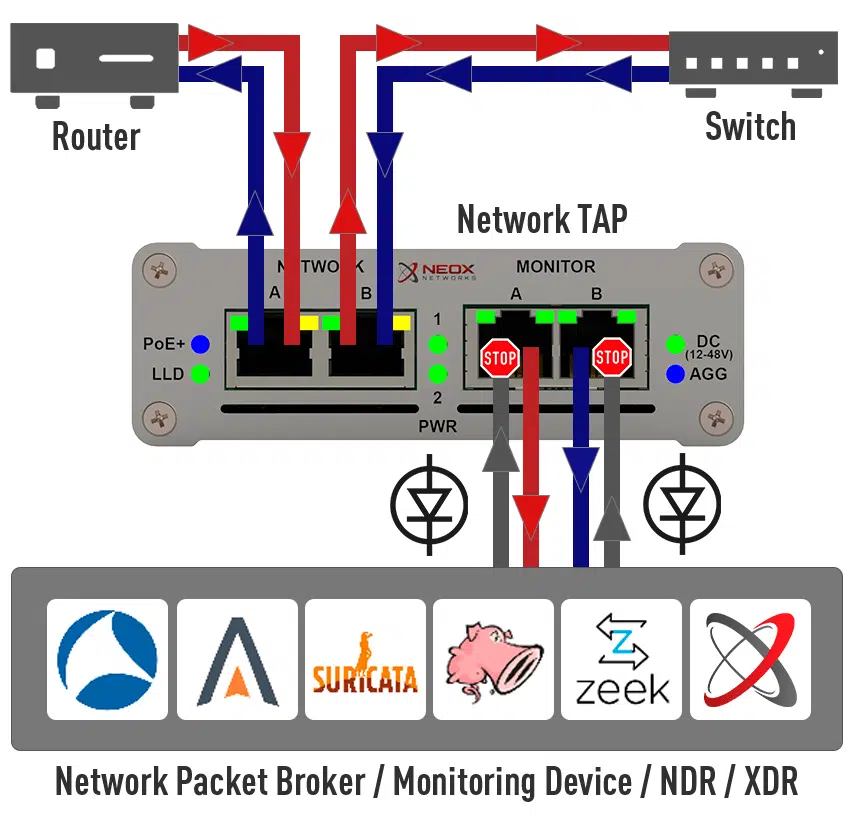Data diodes guarantee unidirectional communication and ensure that data traffic in the network, no matter what type of media is used, can only flow in one direction.
Unidirectional network devices with data diode functionality are typically used to ensure information security or protection of critical digital systems (CRITIS), such as industrial control systems or production networks from cyber attacks.
This data diode function is crucial in a Network TAPs (Test Access Points) as it helps to ensure that network traffic only flows in the intended direction and that any unauthorised access of the network is prevented, helping to prevent data tampering and leakage.
By allowing data to flow in only one direction, a data diode ensures that sensitive or confidential information on the network cannot be viewed or stolen by unauthorised users. This is especially important for organisations that handle sensitive data, such as financial institutions and government agencies.
Another important advantage of the data diode function in Network TAPs is that it helps prevent malicious attacks on the network, for example.
The unidirectional flow of data means that a data diode can prevent hackers from accessing the network and installing malware or other malicious software. This in turn helps protect the network from a variety of threats, including viruses, ransomware and denial-of-service attacks.
In summary, the data diode function is an important component in Network TAPs as it is instrumental in ensuring the security and integrity of network traffic. Since it only allows data flow in one direction without any retroactive effect, it can prevent data breaches and malicious attacks and improve the availability of the network.
Conclusion
Companies that handle sensitive data should consider integrating the data diode function into their Network TAPs to ensure their network security.


